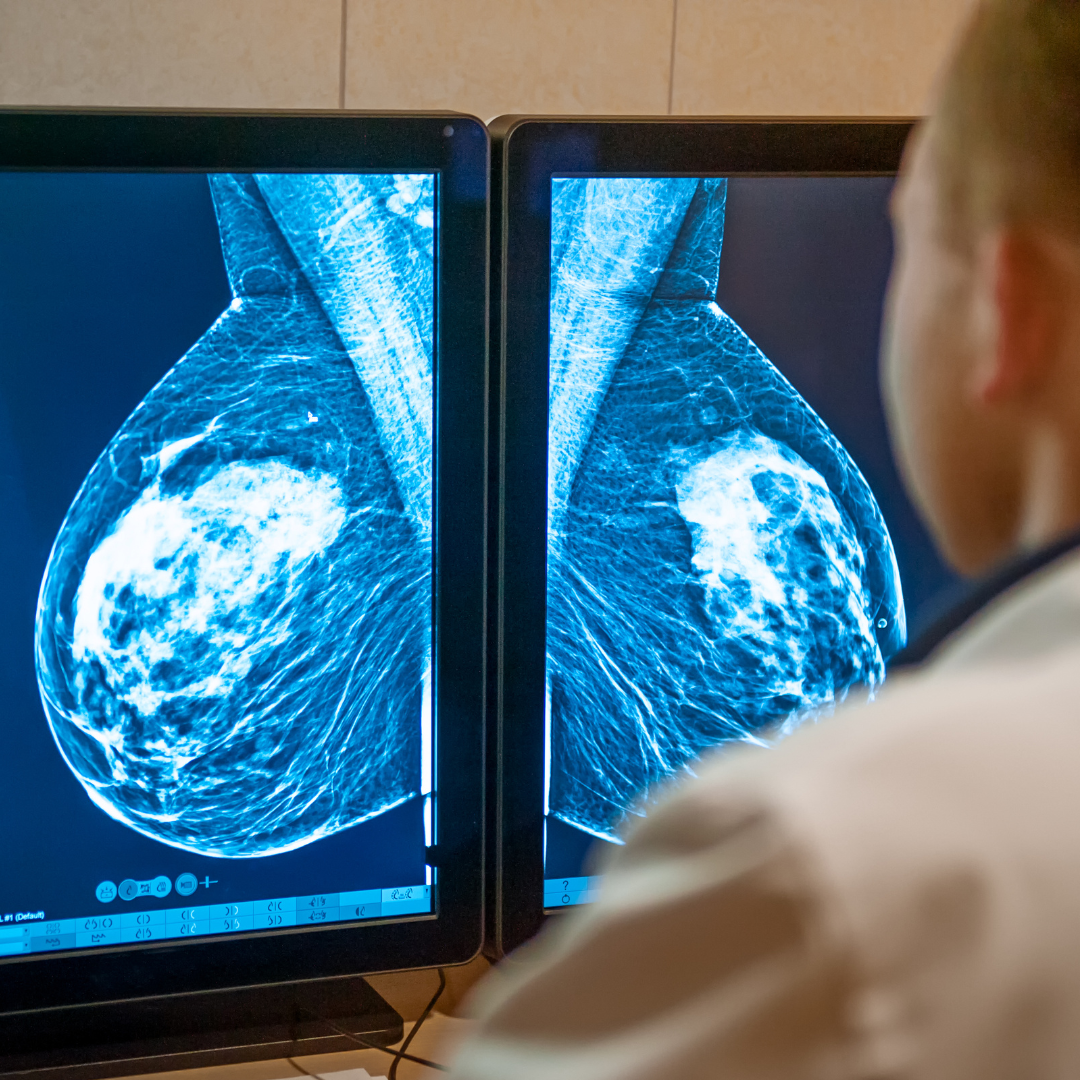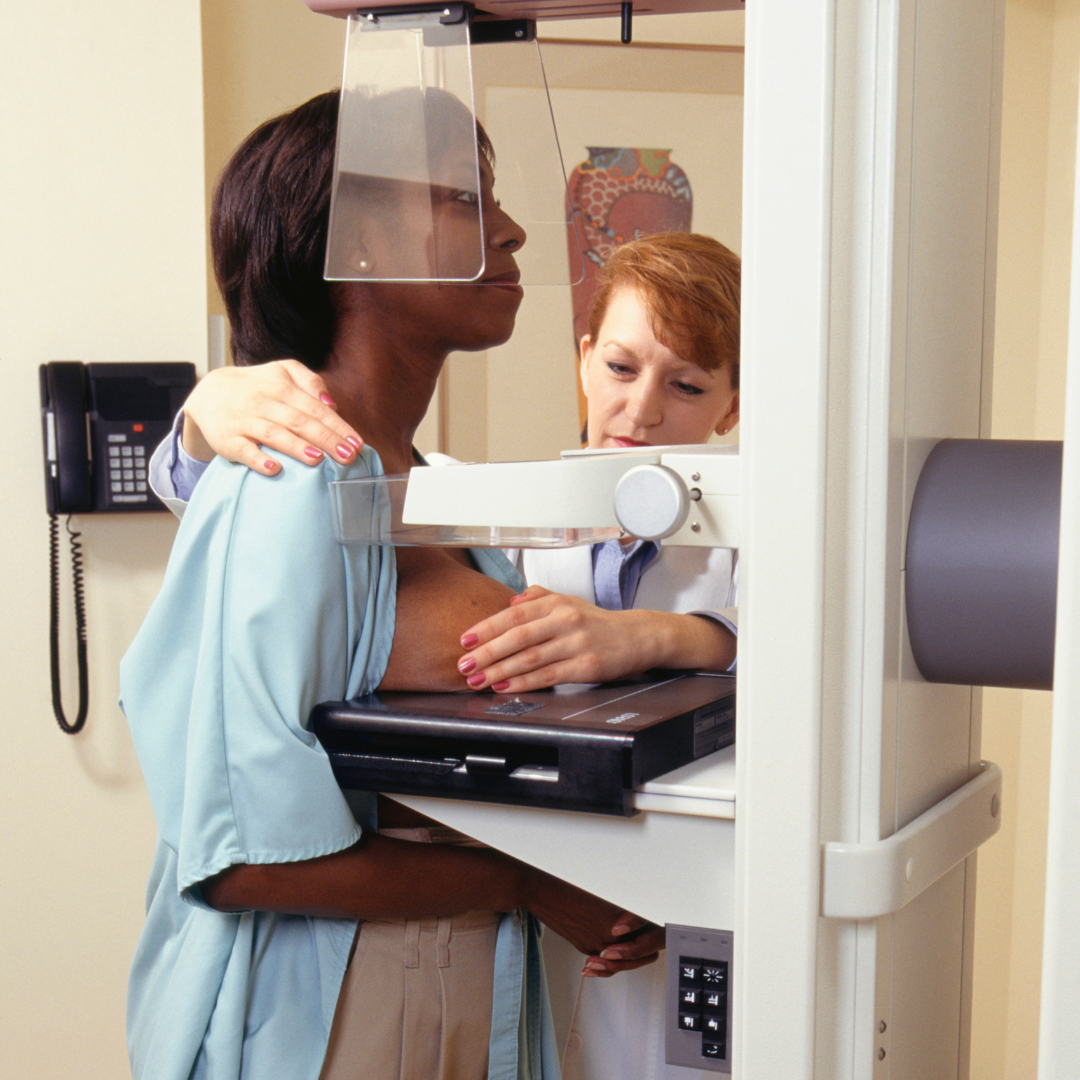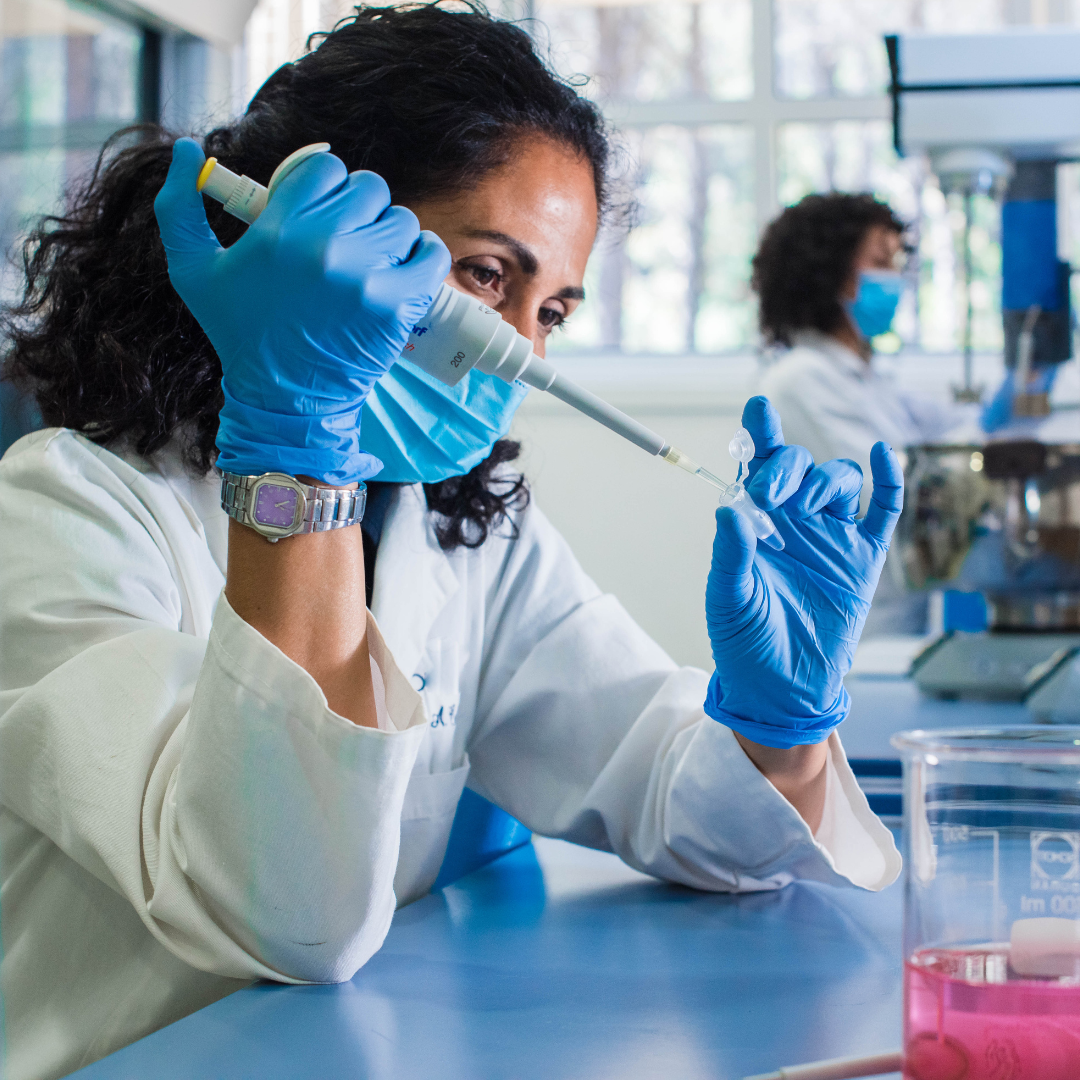
RESOURCES FOR BREAST CANCER EARLY DETECTION
Staying on top of your breast health can be the key to early detection. That's why we put together this library of resources to provide you with all the tools you need to detect early and push back on breast cancer.
Share these great resources below to learn about your own risk for breast cancer, questions to ask your doctor, signs you might need to start screening earlier, and how to check your own breasts!
Take charge of your breast health by using this quick 3 minute quiz to understand your risk factors for breast cancer. Answer basic questions about your health and family history, and we’ll send you customized talking points for you to discuss with your healthcare provider.
Breast Density 101
About 50% of women over 40 have dense breasts. Dense tissue is the amount of fibrous vs. fatty tissue in the breast. Dense breasts increase your risk of breast cancer by 4-6x, and cancer is harder to spot on mammograms in dense tissue. Learn more about breast density and why it increases your chances of breast cancer.
Check Yourself! An Easy Guide to Beast Self-Exam
About 50% of women over 40 have dense breasts. Dense tissue is the amount of fibrous vs. fatty tissue in the breast. Dense breasts increase your risk of breast cancer by 4-6x, and cancer is harder to spot on mammograms in dense tissue. Learn more about breast density and why it increases your chances of breast cancer.
Breast Screening by Age
Women at average risk should begin annual mammograms at age 40. But not everyone is at equal risk -- some need to screen earlier based on their own risk factors for breast cancer. Check out this easy guide to learn how to take care of your breast health at every age.
Am I Too Young?
Cancer diagnoses are on the rise for younger Americans, including breast cancer. Young-onset breast cancers (occurring under age 45) are often aggressive, harder-to-treat breast cancers, such as triple negative breast cancer. Learn about the causes and what you can do to protect your breast health, even at younger ages.
Mammograms 101
New to mammograms? This step-by-step guide walks you through what to expect before, during, and after your breast screening. Learn how to prepare, what the exam involves, when you’ll get your results, and why annual mammograms are key to early detection.
Genetics Q&A
In this expert Q&A, genetic counselor Elizabeth Stark breaks down the basics of inherited breast cancer risk, BRCA mutations, and when to consider genetic testing. Learn how knowing your family history—and your options—can help you take charge of your health and make informed choices about prevention.
Breast Health Videos
Check out our clever, engaging breast health videos that are easily shareable and full of actionable content. Learn about risk factors, screening options, questions for your doctor, breast density and how younger women can take charge of their breast health.
Did you know that dense breast tissue hides up to 50% of cancers on a mammogram? That means if you have dense breasts, your cancer could go undiagnosed. Learn more about dense breasts and other risk factors for breast cancer
We get it. Breast cancer isn't something you want to think about, especially when you're young. But that could be why so many women still find breast cancer too late—when it's a lot harder to deal with.
You and your doctor are a team: Team Your Health. And if your team is going to win, then you need to get in the game! Asking your doctor these breast cancer questions is a great way to start.
Being a woman is the #1 risk factor for getting breast cancer. Breast cancer may push us around, but we can push back. If you find breast cancer early you have a 95% chance of beating it.















